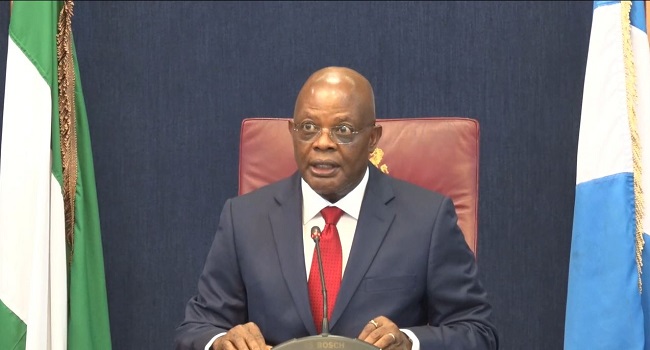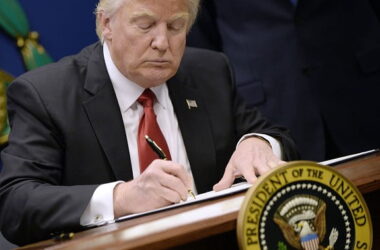A former Chief Magistrate in Rivers State, Ejike George, has publicly explained his decision to resign from the judiciary, revealing that his move was driven by his inability to operate under what he described as a military-style administration.
During an appearance on Channels Television’s Politics Today on Thursday, George addressed the reasons behind his resignation, which he formally submitted in a letter dated April 11, 2025.
The resignation letter, addressed to the Honourable Chief Judge of Rivers State through the Secretary of the Rivers State Judicial Service Commission, highlighted George’s discomfort with the appointment of a sole administrator for the state. He described the imposition of such an administrator as creating a “quasi-military administration.”
George pointed out that he had never been trained to work under a military administrator and was not willing to start doing so now. “I am simply saying that I cannot take instructions from a military administrator. I cannot,” he stated firmly.
He elaborated further on the challenges he anticipated in the new administration, especially in terms of the judiciary’s operations. He made it clear that his resignation was driven by the prospect of adapting to a new system that he felt was incompatible with his career as a magistrate.
The ex-magistrate went on to explain that the judiciary, as he had known it, was governed by civilian administrators. He noted that the state’s courts operated under summary jurisdiction, and while their work was guided by the Constitution, it was still subject to influence from the governor, particularly in relation to security matters.
He pointed out that, in the past, decisions from security meetings with the governor were passed down to the judiciary to address criminal issues in the state. However, he stressed that the new appointment of a sole administrator, with military ties, would disrupt this process and create challenges in carrying out judicial duties.
For George, the lack of prior training or preparation for working with military administrators was a significant factor in his decision to resign. “The judiciary did not take us to any previous training on how to work with military administrators,” he noted.
He expressed concern that without such training, it would be difficult for him or his colleagues to adjust to the new system, making his continued service untenable. “I don’t know how even my colleagues would cope,” he added.
In addition to his resignation, George dismissed suggestions that there was any crisis within the judiciary, specifically the claims made by the Rivers State Judicial Service Commission that he was due for voluntary retirement rather than resignation. He categorically denied any involvement in misconduct, challenging the Commission to release any report of misconduct if it existed. “I never faced any panel for any misconduct,” George asserted, questioning the validity of claims suggesting otherwise.










